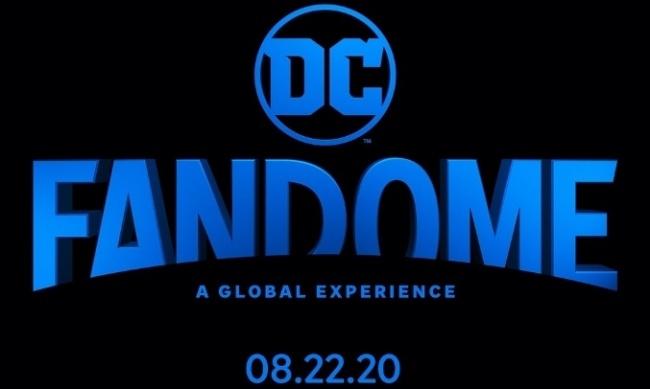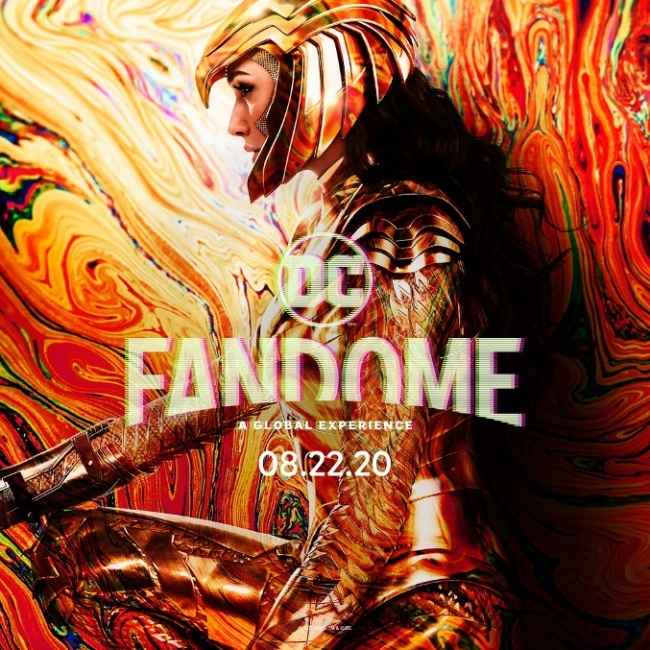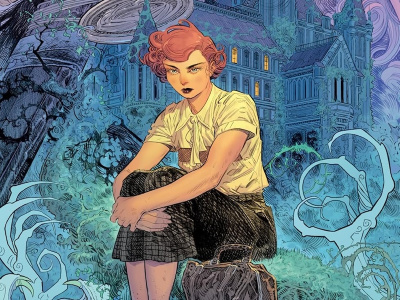While it may be unfair to accuse brands of being control freaks, they are surely "control enthusiasts" when it comes to how they are represented to their fans and the wider public. One area they don’t control is conventions. At a big show, you’re liable to find Microsoft and Sony, DC and Marvel, Funko and Hasbro, all shoulder-to-shoulder on the exhibit floor, glowering at each other’s booths across the aisles and bidding for fans’ attention like common vendors. It must be humiliating for these giant brands who want to participate in must-do fan events like SDCC or NYCC to have to play by someone else’s rules.
The solution to this undignified situation is to create a branded fan event, where the host controls everything: the program, the vendors, the signage, the data, and every jot and tittle of the fan experience, down to what cosplay is permitted. Disney does it with D23; others have tried it in the past. Problem is, fans tend to see more value in the "grand bazaar" model of conventions than the "company store." So branded entertainment companies who want to launch their own mega fan-events face the problem of having to lure customers (beyond their own brand superfans) away from an experience that offers greater choice.
The COVID-19 Con Crunch. All that was "BC" – Before Coronavirus. Now that the nasty little bug has stamped out live events for all practical purposes, at least for the bulk of 2020, all bets are off. While established conventions like SDCC, ReedPOP’s shows, GalaxyCon and Wizard have taken their acts online (see "With Comic Conventions on Lockdown, Organizers Move Online with Mixed Results"), that format doesn’t showcase the advantages that independently-run conventions enjoy over single-brand monoculture events.
Moreover, virtual conventions don’t provide the kind of big stage that showcases the power of big entertainment brands in the fan economy. There’s no Hall H line, there’s no back-to-back schedule of mega-panels to drive buzz, there’s no limo line at the back of the Hilton Bayfront or press pavilion to focus the eyes of the media on whatever the studios are dishing up. There’s no exhibit floor to awe attendees, and cow competitors, with the size and girth of whatever booth or activation brands are showcasing, no 50-foot monitors to show off the latest videogame. Without that spectacle, independent conventions lose the biggest drawing card they have to get the big brands to show up at events that have lost much of their earlier marketing appeal.
While moving online saps the strengths of conventional conventions, it plays to the advantages of entertainment brands who already have a digital footprint and can marshal their resources much more effectively in a digital venue.
Enter the FanDome. I suspect this logic was not lost on the folks at DC and WarnerMedia, who recently announced their own branded online virtual fan experience, the DC FanDome. Scheduled to run for 24 hours starting at 10am PTD on Saturday, August 22, DC FanDome promises to "immerse fans into the DC Multiverse, with new announcements from WB Games, Film and TV, and comics, as well as an unprecedented opportunity to hear from the casts and creators behind your favorite feature films and TV series."
The virtual event is centered on a Hall of Heroes, presumably a landing page featuring live streaming video of panels, announcements, previews and demos. There’s a "YouVerse" featuring user-generated content, cosplay and fan art; a special KidsVerse area for young’uns; a Jim Lee-hosted InsiderVerse, and a digital merch store (DC FunVerse). The addition of a "Blerd and Boujee House" to celebrate nerds of color is a smart and timely touch.
Assuming the technology experience can deliver on the hype, FanDome looks to be a well-conceived strategy to focus fan attention on all things DC and Warner Bros for a solid day in late summer, just in time to ramp up for the fall viewing season.
DC FanDome may not deliver the wow-factor of a gigantic booth on the SDCC floor or a block of Hall H programs, but those things are off the table this year for everyone anyway. A DC-branded event won’t get unfavorably compared to a giant mega-con if there are no giant mega-cons on offer.
By contrast, an extravagant, professionally-produced and WB-bankrolled online experience will probably look awfully good compared to a YouTube channel of recorded Zoom videos or some patched-together online celebrity meet-and-greets packaged as a virtual convention. Best of all from WarnerMedia’s perspective, all this is a drop in the bucket cost-wise compared to shlepping down to San Diego or setting up for a week in New York, with minimal impact on the talent or the production teams.
DC Flexing Their Muscles. If Warner Bros/DC were to launch their own branded live event to compete with SDCC, D23, or even Star Wars Celebration under ordinary circumstances, it would represent a huge risk both financially and in terms of fan good will. Would the potential upside and advantages of a controlled environment and coordinated message outweigh the potential downside of cannibalizing the market and diluting the media focus that’s built-in to a longstanding institution like San Diego Comic-Con? Maybe. But it would be a leap into the dark.
Those issues are moot now. DC and potentially every other big geek culture brand can try out a proprietary event model with (relatively) low investment and no competition, because there’s literally nothing to lose. DC FanDome has the potential to provide WarnerMedia with lessons, templates and data to bring a similar event to the real world as soon as circumstances warrant it. That’s not a guarantee of success, but it definitely mitigates the risk.
Even if it bombs, so what? Everything sucks this year, so it won’t be to DC’s special discredit.
Kicking Cons When They’re Down. Though conventions – particularly SDCC – were integral parts of geek brands’ march into the mainstream in the aughts, they’ve long past the point of diminishing returns now that geek culture has eaten popular culture whole. I strongly suspect most of the big entertainment brands see these shows as more of a speedbump than a launching pad in their bid for total market domination. Or, worse, an anachronistic egalitarian affront to their corporate ambitions to control every aspect of the fan experience.
It was tough to launch a direct assault on independent shows as long as fans had a choice of big events. Now that no one has a choice, and the landscape favors companies who can deliver top-drawer media experiences online, it’s the best opportunity that the big guys are likely to get to change the prevailing model.
If and when big conventions awaken from their COVID-induced coma, they might find the world looks different in all kinds of ways.
The opinions expressed in this column are solely those of the writer, and do not necessarily reflect the views of the editorial staff of ICv2.com.
Rob Salkowitz (@robsalk) is the author of Comic-Con and the Business of Pop Culture.

Column by Rob Salkowitz
Posted by Rob Salkowitz on June 23, 2020 @ 8:01 pm CT
MORE COMICS
People on the Move Round-Up
August 13, 2025
Our People on the Move Round-Up reports on the new Funko CEO, a move to Penguin Random House Publisher Services, and an industry vet to Prana.
Harvey Award Nominees 2025
August 12, 2025
Here’s the list of 2025 Harvey Award nominees.
MORE COLUMNS
Column by Scott Thorne
August 11, 2025
This week, columnist Scott Thorne notes a new twist in the Diamond Comic Distributors saga and shares his thoughts on the Gen Con releases that will make the biggest impacts.
Column by Jeffrey Dohm-Sanchez
August 7, 2025
ICv2 Managing Editor Jeffrey Dohm-Sanchez lays out the hotness of Gen Con 2025.









